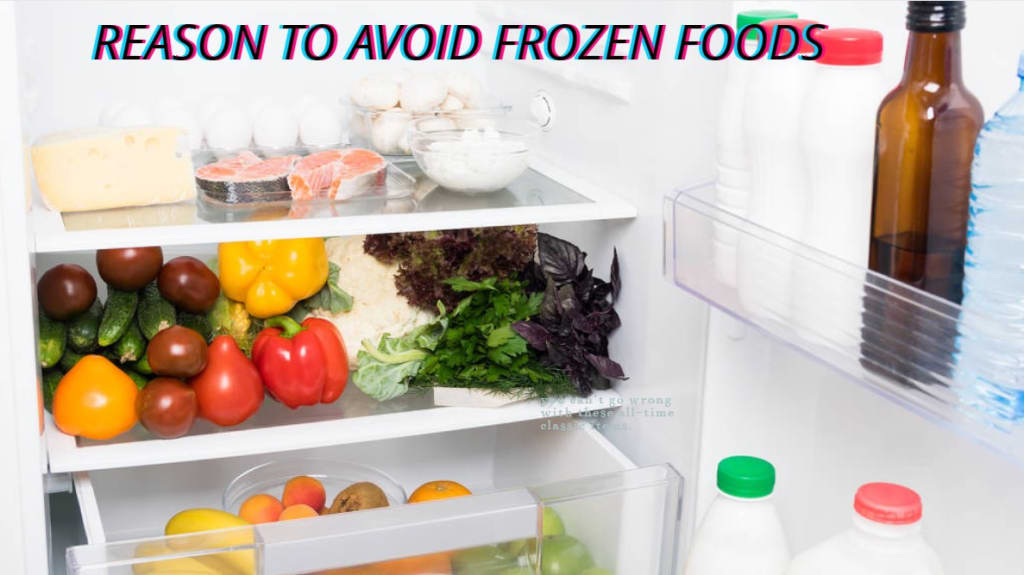
Eating frozen foods has become a popular trend in modern society, as it offers convenience and a longer shelf life. However, consuming frozen foods can also come with potential side effects. In this article, we will discuss the possible side effects of eating frozen foods.
1. Nutrient Loss
When food is frozen, there is a possibility of nutrient loss. Vitamins and minerals are essential for maintaining good health and supporting the immune system, and frozen foods may have lower nutrient levels than fresh foods. This is because some vitamins and minerals are sensitive to heat and light, which can be lost during the freezing process. To minimize nutrient loss, it is recommended to consume fresh, whole foods whenever possible.
2. Increased Sodium Content
Frozen foods, especially processed and pre-packaged meals, are often high in sodium. Excessive sodium intake can lead to high blood pressure, heart disease, and stroke. It is important to check the sodium content of frozen foods before consumption and to choose low-sodium options whenever possible.
3. Preservatives
Many frozen foods contain preservatives to extend their shelf life. These preservatives may include additives like sodium benzoate, nitrites, and sulfites. While these preservatives are generally considered safe, some people may be sensitive to them and experience adverse reactions such as headaches, skin rashes, and breathing difficulties.
4. Pesticides and Chemicals
Frozen fruits and vegetables are often treated with pesticides and chemicals to protect them from insects and disease. These chemicals can remain on the food even after it has been frozen, and prolonged exposure can lead to health problems such as cancer and reproductive disorders. To minimize exposure to pesticides and chemicals, it is recommended to buy organic frozen fruits and vegetables whenever possible.
5. Foodborne Illness
Improper storage and handling of frozen foods can lead to foodborne illness. Bacteria can grow on frozen foods if they are not stored at the correct temperature or if they are left out to thaw for too long. To reduce the risk of foodborne illness, it is important to follow the recommended storage and cooking instructions on frozen food packaging.
6. Increased Risk of Obesity
Frozen foods, especially processed and pre-packaged meals, are often high in calories, fat, and sugar. Regular consumption of these foods can lead to weight gain and an increased risk of obesity, which is associated with a range of health problems such as diabetes, heart disease, and stroke. It is important to read the nutritional labels of frozen foods before purchasing and to choose low-calorie, low-fat, and low-sugar options whenever possible.
7. Digestive Issues
Eating too many frozen foods can lead to digestive issues such as bloating, constipation, and diarrhea. This is because many frozen foods are high in preservatives, sodium, and fat, which can irritate the digestive system. To promote digestive health, it is recommended to consume fresh, whole foods that are rich in fiber and nutrients.
8. Reduced Taste and Flavor
Frozen foods, especially those that are pre-packaged and heavily processed, may have a reduced taste and flavor compared to fresh foods. This is because freezing can alter the texture and taste of certain foods, leading to a bland and unappetizing meal. To enhance the taste and flavor of frozen foods, it is recommended to add spices and herbs or to opt for frozen fruits and vegetables that are flash-frozen at peak ripeness.
In conclusion, while frozen foods offer convenience and a longer shelf life, they can also come with potential side effects. These include nutrient loss, increased sodium content, preservatives, pesticides and chemicals, foodborne illness, increased risk of obesity, digestive issues, and reduced taste and flavor. To minimize the risks associated with frozen foods, it is important to choose low-sodium, low-fat, and
About the Creator
HARSHAN
Hello, fellow adventurers! I'm a fun-loving writer with a passion for cute and colorful things.
Join me as I explore the world, share my stories on travel, fashion, and lifestyle, and sprinkle some positivity and inspiration along the way!






Comments
There are no comments for this story
Be the first to respond and start the conversation.